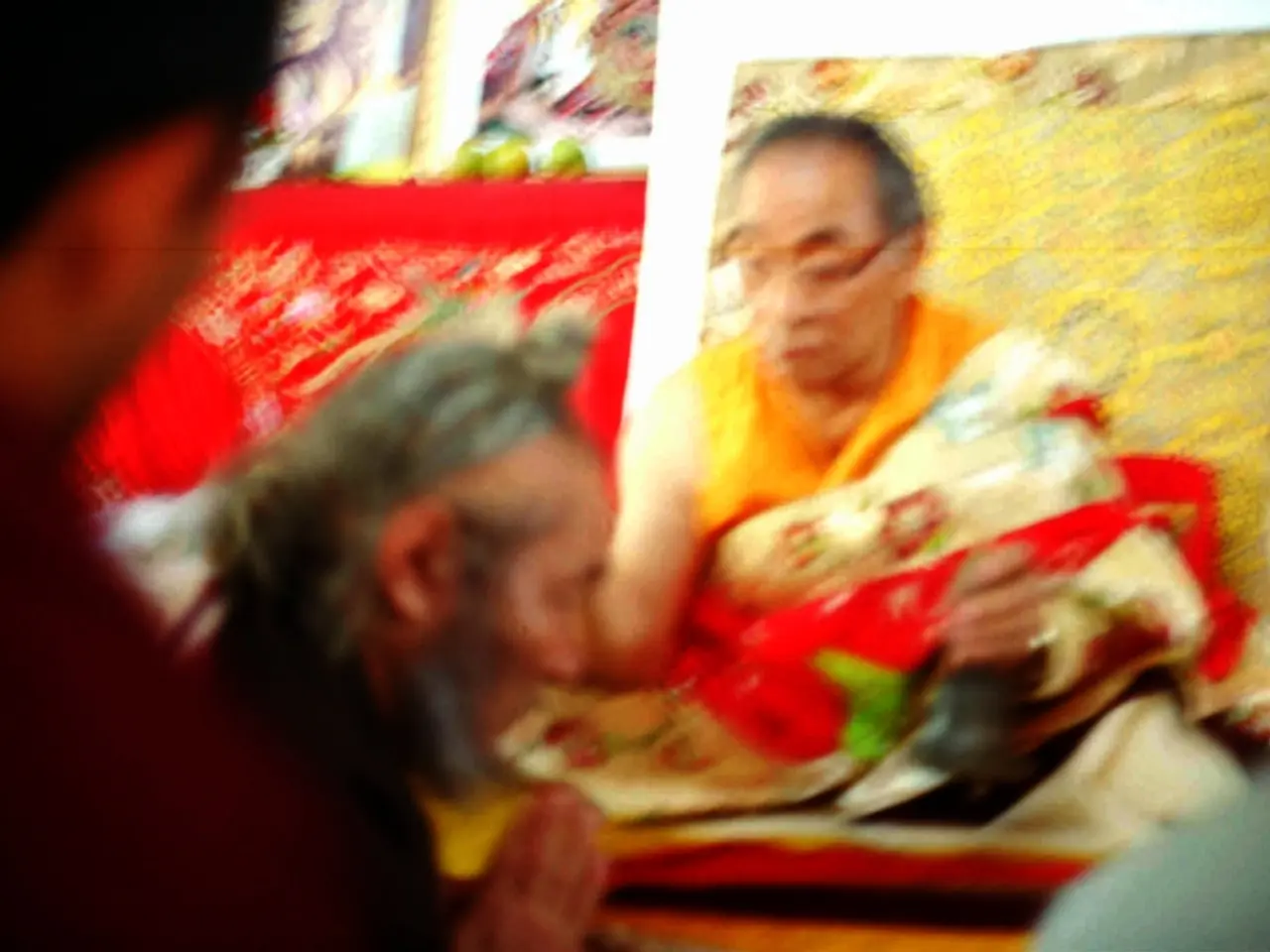Dalai Lama's inward wisdom on happiness: Insights into joy, empathy, purpose and their significances
The Dalai Lama, the spiritual leader of Tibetan Buddhism, views mental training and spiritual practices as fundamental means to cultivate inner transformation, emotional balance, and genuine happiness. He emphasizes that happiness arises from within, not from external conditions.
In his book 'The Art of Happiness' (1998), co-authored with American psychologist Howard Cutler, the Dalai Lama discusses human happiness. For him, happiness is about our inner state of life and can be developed through mental and spiritual training and practices.
Mindfulness, or present-moment awareness with ethical responsibility, is a key aspect of this approach. It involves two key aspects: calm abiding, which calms and focuses the mind, and insight, which penetrates into the nature of reality such as impermanence and non-self. This mindful awareness opens the door to wisdom and aids in regulating emotions like anger and anxiety. Compassion, inseparable from this process, is both a path to helping others and a way to enhance one's own happiness.
The Dalai Lama's spiritual practice also includes study and reflection on Buddhist teachings, especially the cultivation of bodhichitta (the awakening mind of compassion) and the view of emptiness (understanding reality beyond fixed notions). Through analytical meditation and application, these practices transform the mind, reduce suffering, and support social harmony, all leading to a meaningful life with inner peace.
The Dalai Lama advocates for the secular integration of these practices, collaborating with scientists to deepen understanding of meditation’s benefits. His approach underscores that happiness is fundamentally an inner state developed through mental and spiritual disciplines, aligning empathy, mindfulness, and wisdom as a holistic path toward well-being.
The Dalai Lama encourages individuals to strive to train and master their minds with a spiritual practice. He believes that true and lasting happiness is based on an awareness of the interconnectedness of all life on our planet. He also advises that we should learn to want what we have to achieve steady and stable happiness.
The pursuit of human happiness as a formal concept is about 70 years old, initiated by psychologist Abraham Maslow in the 1950s. The Dalai Lama's teachings align with this modern movement, emphasizing the importance of mental and spiritual training in contributing to human happiness. He also emphasizes the importance of gratitude in achieving happiness.
Interestingly, a study conducted by three economists in 2020 found that while lottery wins improve life satisfaction, they have little impact on happiness after a certain period. This supports the Dalai Lama's view that true happiness comes from within, not from material gain.
In summary, the Dalai Lama connects mental training and spiritual practice as synergistic, leading to the pursuit and experience of happiness through inner transformation, compassion, and wisdom rather than external achievement or material gain. His holistic vision aligns ethical mindfulness with profound understanding and compassionate engagement with the world.
- The Dalai Lama's teachings in 'The Art of Happiness' suggest that true happiness can be cultivated through a combination of mental and spiritual training, focusing on mindfulness, compassion, and wisdom.
- In alignment with modern psychology, the Dalai Lama emphasizes that gratitude plays a significant role in achieving happiness, demonstrating its importance in his holistic approach.
- Contrasting external factors such as material gain, the Dalai Lama underscores the significance of an inner state developed through empathy, mindfulness, and wisdom as the path to genuine happiness and inner peace.




